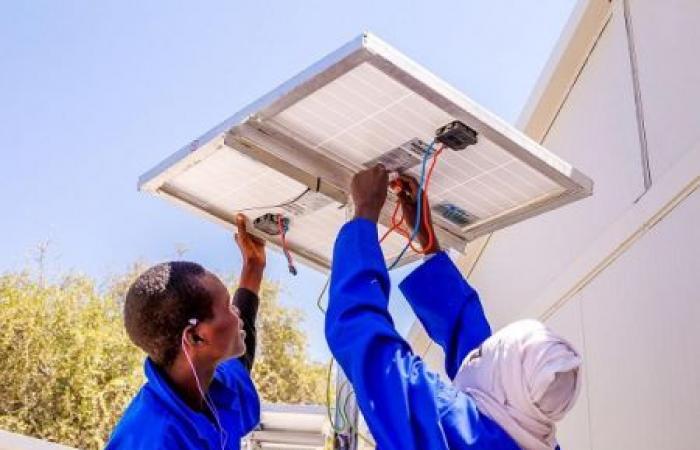(Ecofin Agency) – Announcing its development plans for 2025, energy project developer Bboxx indicated that the expansion and better calibration of subsidy programs could be a major turning point for access to energy in Africa.
In Africa, 600 million people still live without electricity and billions of dollars in subsidies are pumped into the energy sector every year. If well designed and targeted, subsidies could indeed become a transformative lever for electrification in Africa. But in their current form, they are only a temporary solution, incapable of lastingly resolving the continent’s structural challenges.
Electrification subsidy programs have demonstrated their effectiveness in various sectors in reducing financial barriers and increasing access to basic services. In Africa, examples such as Kenya’s solar mini-grid program and Morocco’s solar home project show that, when well-calibrated, subsidies can quickly improve energy access. In 2019, Kenya deployed solar mini-grids in remote areas, providing more than 200,000 households with access to electricity. This model made it possible to circumvent the exorbitant costs linked to the extension of national electricity networks, thus making access to energy faster and less expensive. At the same time, Morocco has invested heavily in large-scale solar energy, subsidizing the installation of solar panels for rural communities and businesses, thus contributing to the diversification of its energy mix and the improvement of quality. life of thousands of citizens.
However, the impact of subsidies remains uneven and sometimes ineffective. A study by the World Bank and the International Energy Agency (IEA) found that energy subsidies in Africa mainly favor wealthier households, while rural, poorer and harder-to-reach populations , only receive a minimal part of these funds. For example, in South Africa, electricity subsidies mainly benefit residents of urban areas, where energy consumption is higher, leaving rural areas in a situation of increased energy vulnerability.
For subsidies to become a real lever for transformation, it is imperative to reform public policies by adopting a flexible and technology-agnostic approach. In other words, instead of only favoring centralized solutions or existing grid extensions, governments must also promote decentralized solutions, such as mini-grids or solar home systems, based on the specific needs of each area. This would maximize the impact of subsidies and address the various geographic and socio-economic challenges faced by rural populations.
The Kenya Solar Mini-grid Program (KOSAP), supported by the World Bank, is a good example of this approach: it aims to electrify more than a million people in isolated regions in less than five years, at much lower costs to those of the classic extension of national networks.
Other international models, such as domestic solar subsidies in India or decentralized electrification in Bangladesh, also show that the impact can be considerable if subsidies are well targeted and accompanied by effective governance. In India, the National Solar Mission program, launched in 2015, has provided more than 30 million homes with access to solar energy. In Bangladesh, the integration of microcredits and subsidies has led to the installation of solar systems in more than 4 million homes. These initiatives, supported by strong public-private partnerships, could inspire African decision-makers to better structure their subsidy policies.
Without an overhaul of current models, subsidies will continue to illuminate already favored areas and leave the most vulnerable populations in the shadows. Furthermore, it is necessary to emphasize that subsidies alone cannot resolve the deep structural challenges linked to electrification in Africa. It is through rigorous governance, structural reforms and better coordination between public and private actors that Africa can hope to achieve the objective of universal electrification by 2030. Otherwise, subsidies will only be a cautery on a wooden leg.
Olivier de Souza






